Did you know that daughters of narcissists fathers, are more likely to grow up, and be attracted to narcissistic men when it comes to relationships?
Due to the first blueprint for romantic relationships being molded by their toxic fathers, daughters of narcissistic fathers run the risk of engaging in a trauma repetition cycle and ending up in unhealthy relationships or friendships in adulthood.
Daughters of narcissistic fathers may find themselves being retraumatized by predators who are very similar to their first male ‘role model.’ This is not their fault: anyone can be targeted by a malignant narcissist regardless of their trauma history and anyone can be affected by the effects of trauma.
Yet it is important to consider that childhood abuse survivors may be especially vulnerable to grandiose, narcissistic types not only due to their deeper core wounds and beliefs but also the narcissist’s own predatory behavior.
Toxic narcissistic types tend to find a great deal of narcissistic supply in those who have empathy, compassion, and resources, as well as psychological resilience built up from trauma (Frankenhuis & de Weerth, 2013). The resilience of survivors may, at first glance, seem like an odd trait to pinpoint in this context, but it is actually one that the abusive narcissist depends on in the abuse cycle.
Consider that the children of narcissists may not have learned how to implement appropriate boundaries, but they learned how to survive while subjected to extreme duress.
These essential skills of survival might have been necessary in childhood to avoid the threat of emotional and/or physical harm, but in adult relationships, they become the very factors that can make us susceptible to predators in adulthood.
Related: Marasmus: How A Lack Of Affection In Early Childhood Affects A Child
How Resilience Plays a Factor in the Trauma Repetition Cycle
That is why daughters of narcissists who have been ‘primed’ for abuse may find themselves encountering one predator after another without understanding why. They blame themselves for staying or getting into these relationships, not realizing that two of their greatest strengths – the ability to be resilient and their empathy for others – are being unfairly exploited in a dangerous power play.
Daughters of narcissistic fathers can fall prey to exploitation in adulthood because they learned early on how to be caretakers, adept problem-solvers, and multi-taskers: they learned how to juggle detecting threats in their environment while responding to them in a way that mitigated the danger.
They are extremely competent at performing emotional labor for others as well as picking up on nonverbal cues that signal potential threat or abandonment.
In an abusive relationship, this gets translated into people-pleasing, walking perpetually on eggshells and an entrenched sense of powerlessness.
In a healthy relationship, with healthier boundaries and an expectation of emotional reciprocity, daughters of narcissists have much to offer their partners.
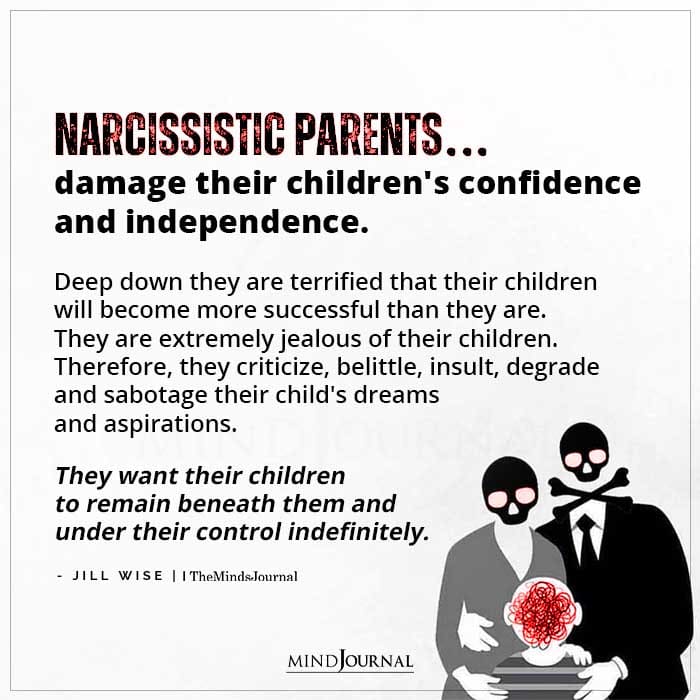
Their maturity, emotional generosity, and attentiveness to their partner’s needs can be assets in a healthy relationship after they have developed a healthy sense of self. In an abusive one with a malignant narcissist, however, her willingness to see her partner’s perspective and meet his needs gets taken advantage of and used against her.
What may be surprising for others to learn is that it is not just her vulnerability that makes her a target; it is also her resilience.
The more resilient the daughter of a narcissist is from the violations of her childhood, the more likely she will ‘bounce back’ after incidents of abuse, and continue to try to ‘fix’ or solve the problems of the abusive relationship, much like she did in her early childhood.
She will avoid the threats of confrontation and conflict, leaving her open to the far greater danger of being in a long-term toxic relationship that depletes and drains her. This is especially pertinent to consider since abusive types will test the boundaries of their victims continually throughout the relationship to ensure that the victim grows accustomed to the abuse over time.
Related: 6 Reasons Why People Coming From An Abusive Family Fail To Be Happy In Life
Daughters of narcissists are attracted to narcissistic men: How to address this?
Heal your subconscious wounding through mind-body techniques and alternative remedies. A great deal of our behavior is actually driven by the subconscious mind; that is why talk therapy alone often does not do justice in healing significant trauma or deeply destructive, ingrained beliefs (Lipton, 2016).
It is also important to note that trauma is often stored in the level of the body; its imprint is left on parts of the brain that do not have as much access to the more rational parts of our brain and thus cannot be healed ‘cognitively’ (Tippet & Kolk, 2017).
That is why in addition to traditional therapy, survivors may benefit from EMDR, EFT, hypnotherapy, trauma-focused yoga, Reiki healing, aromatherapy, sound bath therapy as well as a daily meditation practice and exercise regimen to ‘cleanse’ the subconscious wounding that may be tethering them to these abusive partners or friends.
Speak with a mental health professional to find the therapies that best suit your unique needs or triggers; remember that there is no ‘one size fits all’ healing path for survivors. What may work for one survivor may not work for you, but as you experiment with different modalities, you might just find the right healing ‘package’ to meet your wounds.
Rework existing narratives and modify your behavior accordingly. Psychologists and sociologists believe we construct narratives out of our life experiences to give our lives and identities shape and meaning (McAdams, 2006). Bring any destructive narratives and beliefs you have about yourself, your relationships, and the world to the surface – and dismantle them.
You may unravel these through the healing modalities we discussed and you might also discover these by delving into past patterns of feeling, thinking, and behaving. How do you speak to yourself and treat yourself on a daily basis? What sort of behaviors do you tend to tolerate or rationalize? How do you feel when navigating the world? What is your personal life story and identity story?
If you have a pattern of getting involved with emotionally unavailable partners, for example, you might be acting out from the childhood trauma of encountering emotional unavailability from the only father figure you ever knew. You may have a running narrative of never feeling like you belonged and never being ‘good enough’ for a healthy and loving relationship.
Gently replace these narratives with more empowering affirmations to regain your sense of safety in the world as well as your sacred boundaries for future relationships. A healthier rewriting of the narrative might look something like, “I am and always will be enough. Just because I was traumatized doesn’t mean it was my fault. I, of all people, deserve healthy and safe relationships. I am a survivor who can break the pattern.”
Then, begin to reinforce these new beliefs and cement them by engaging in small steps that communicate to yourself that you are paving a new path to freedom from old beliefs. For example, limiting contact with toxic people in your life can be one small step to prove to yourself that you are committed to your new belief that you can trust your instincts about toxic people and newfound willpower to stay away from them.
Related: 30 Ways In Which Narcissistic Parenting Affects A Child
Creating a “sacred boundaries” list and brainstorming a plan for implementing healthier boundaries can also be helpful to this process. For a list of guidelines for fairness and intimacy, check out trauma therapist Pete Walker’s Human Bill of Rights.
Seek more positive male role models. Due to their upbringing, daughters of narcissistic fathers may have been conditioned to feel as if males are potentially dangerous or emotionally bankrupt in some way.
This might act as a filter or even drive a confirmation bias where they end up meeting more and more dangerous men that prove their core beliefs about men and masculinity right – a form of trauma reenactment to attempt to resolve past childhood wounds (van der Kolk, 1989).
Unfortunately, in a world that is steeped in violence against women – from sexual assault to brutal honor killings – we may have also internalized this sense of danger culturally as well – for very legitimate reasons.
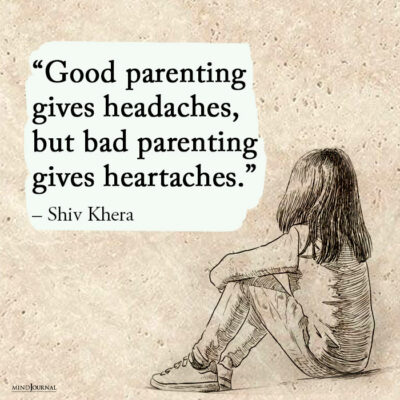
It’s not about getting rid of this very valid fear of meeting dangerous men, but gently inviting the idea of safer men into the narrative. It’s important to recognize that there are ‘safe’ men in the world even in the midst of oppression – men who wouldn’t dream of deliberately hurting or terrorizing you.
These are the men who are truly attractive and desirable – even if your early childhood programming (through no fault of your own) made you feel more drawn to danger on a subconscious and biochemical level. So begin to take notice of these men who provide an alternative narrative – one of empathy and compassion. Even if these role models are public figures rather than anyone you personally know, start to think about the kinder, gentler, and protective males you have met, encountered, or heard about in your life’s journey.
Branch out – they could be your neighbors, your classmates, a teacher who influenced you, a local community leader, an author, a social activist, an old boyfriend, or a male friend…the possibilities are endless.
Think about the men in your life who have worked hard to evolve and have emotionally comforted and validated you in the past. If you have a validating male therapist, you may want to also consider him as a role model for what positive ‘masculinity’ represents.
Related: 5 Ways Being Raised By A Narcissist Negatively Affects Your Life
By recognizing and identifying healthier models, you can also pinpoint the qualities, characteristics, and behaviors of what an empathic, compassionate mate or friend would look like for the future.
While daughters of narcissistic fathers can have a history of complex trauma and trauma repetition, the cycle can and will be broken. The strong will and resilience of survivors can serve them well when it comes to utilizing the necessary healing modalities, resources, and self-compassion it takes to heal themselves and future generations.
References
Frankenhuis, W. E., & de Weerth, C. (2013). Does early-life exposure stress shape or impair cognition? Current Directions in Psychological Science, 22, 407-412.
Kolk, B. V. (1989). The compulsion to repeat the trauma. Psychiatric Clinics of North America, 12(2), 381-411. Retrieved May 19, 2017, from http://www.cirp.org/library/psych/vanderkolk/
Lipton, B. H. (2016). The biology of belief: Unleashing the power of consciousness, matter & miracles. Carlsbad, CA: Hay House.
McAdams, D. P. (2006). The stories we live by : Personal myths and the making of the self. New York: The Guilford Press.
Tippet, K., & Kolk, B. V. (2017, March 9). Bessel van der Kolk – How Trauma Lodges in the Body. Retrieved May 19, 2017, from https://onbeing.org/programs/bessel-van-der-kolk-how-trauma-lodges-in-the-body/
This is a five-part series that will feature five common obstacles daughters of narcissistic fathers encounter on their journey to healing and how to heal. This is part three of the series. Look for Part 1 here and Part 2 here. Stay tuned for Part 4.
Written By Shahida Arabi, M.A.
Printed With Permission
This article originally appeared on PsychCentral.com
Daughters of narcissists have it tough when it comes to dating and relationships, and more often than not end up falling in love with the wrong people. If you are one of them, then see the signs and stay away from toxic, and narcissistic men. Work on healing yourself, and the right person will come along when you will least expect it.
If you want to know more about why women are attracted to narcissists, then check this video out below:


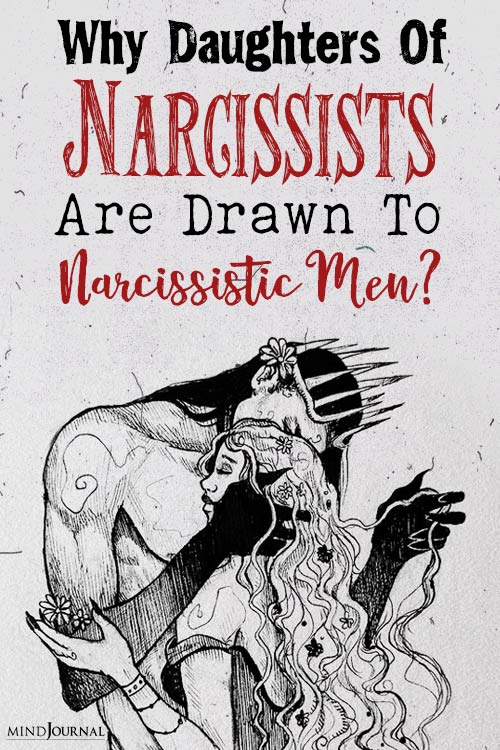
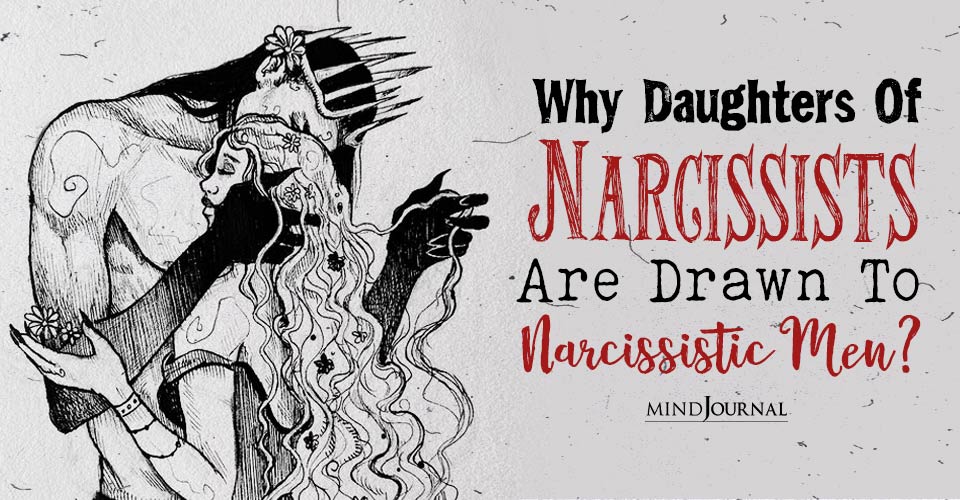
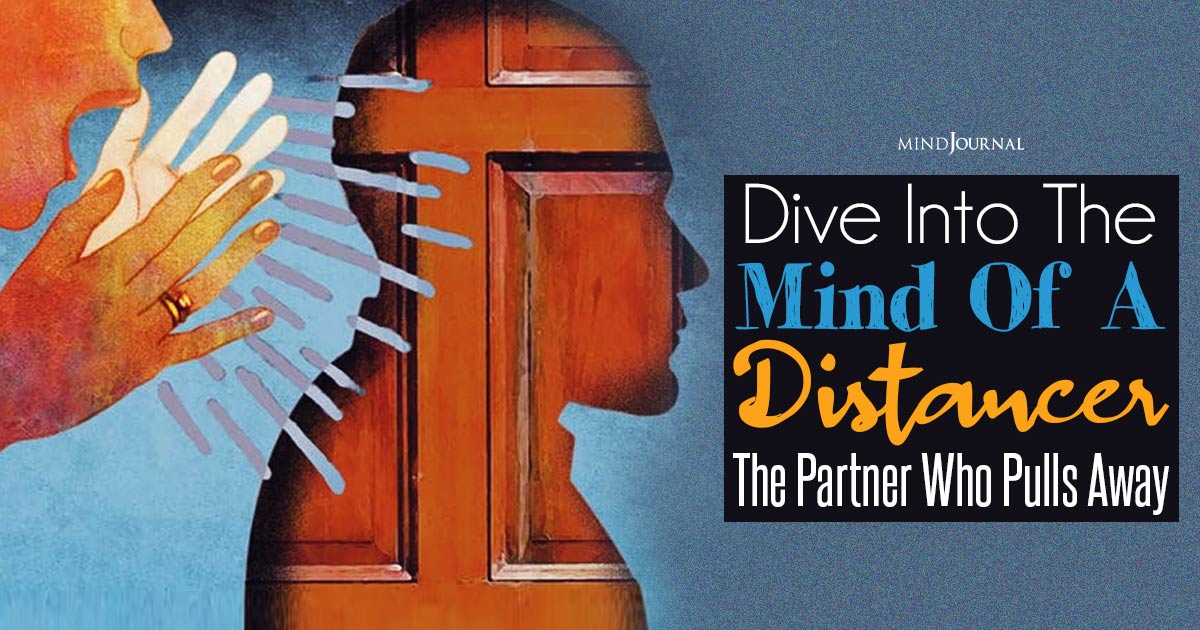


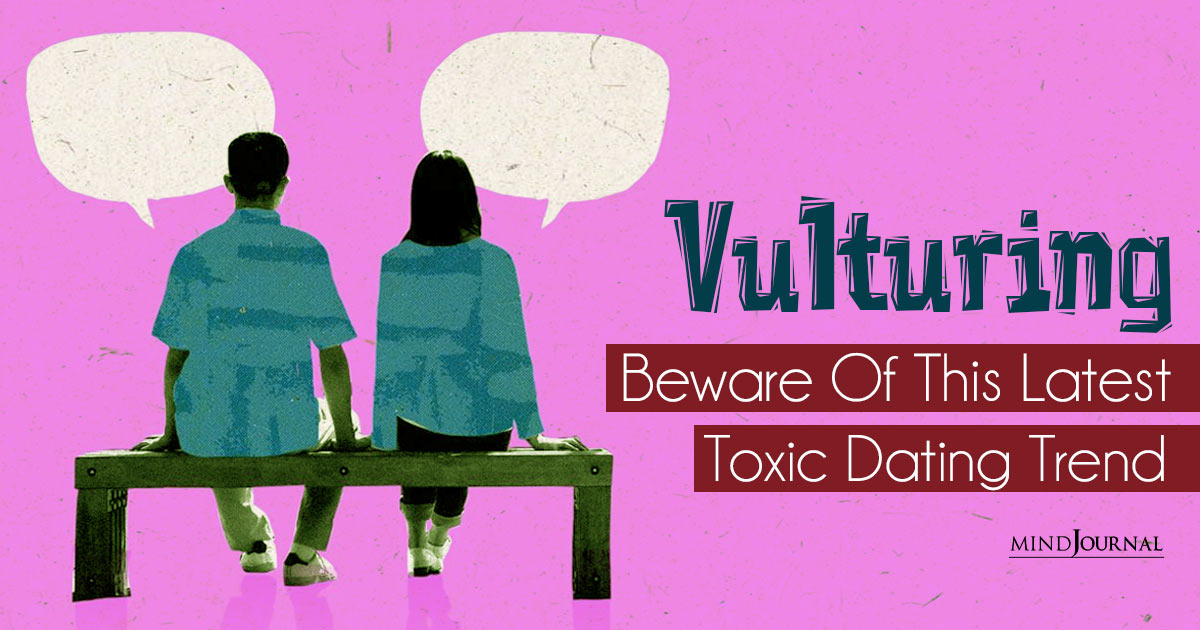
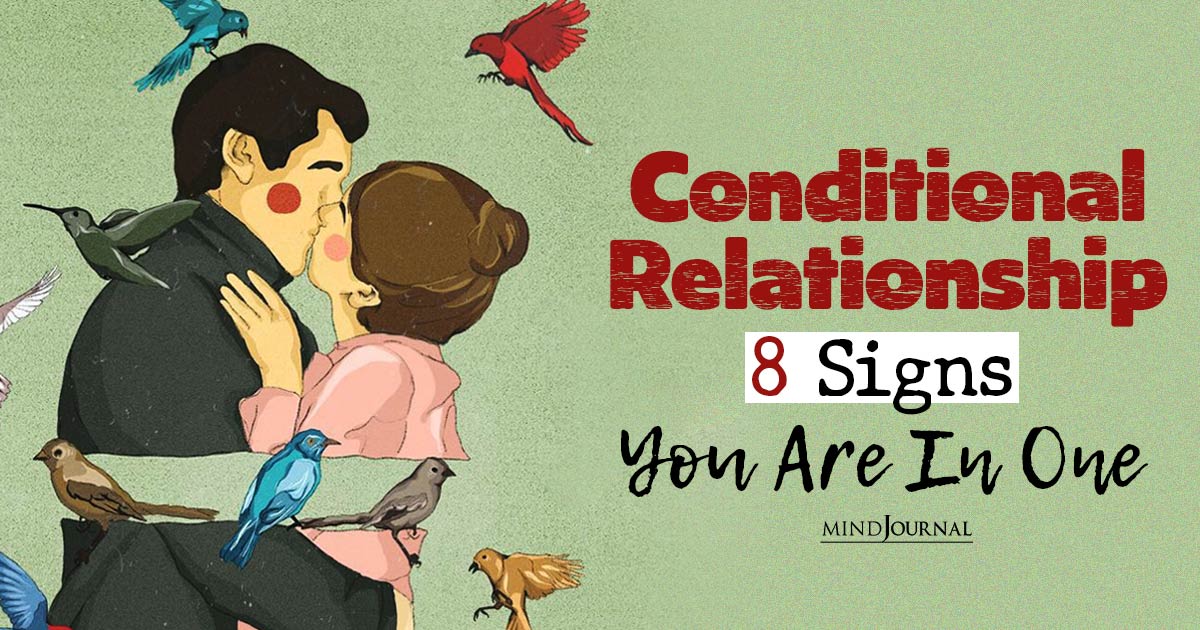


Leave a Reply
You must be logged in to post a comment.